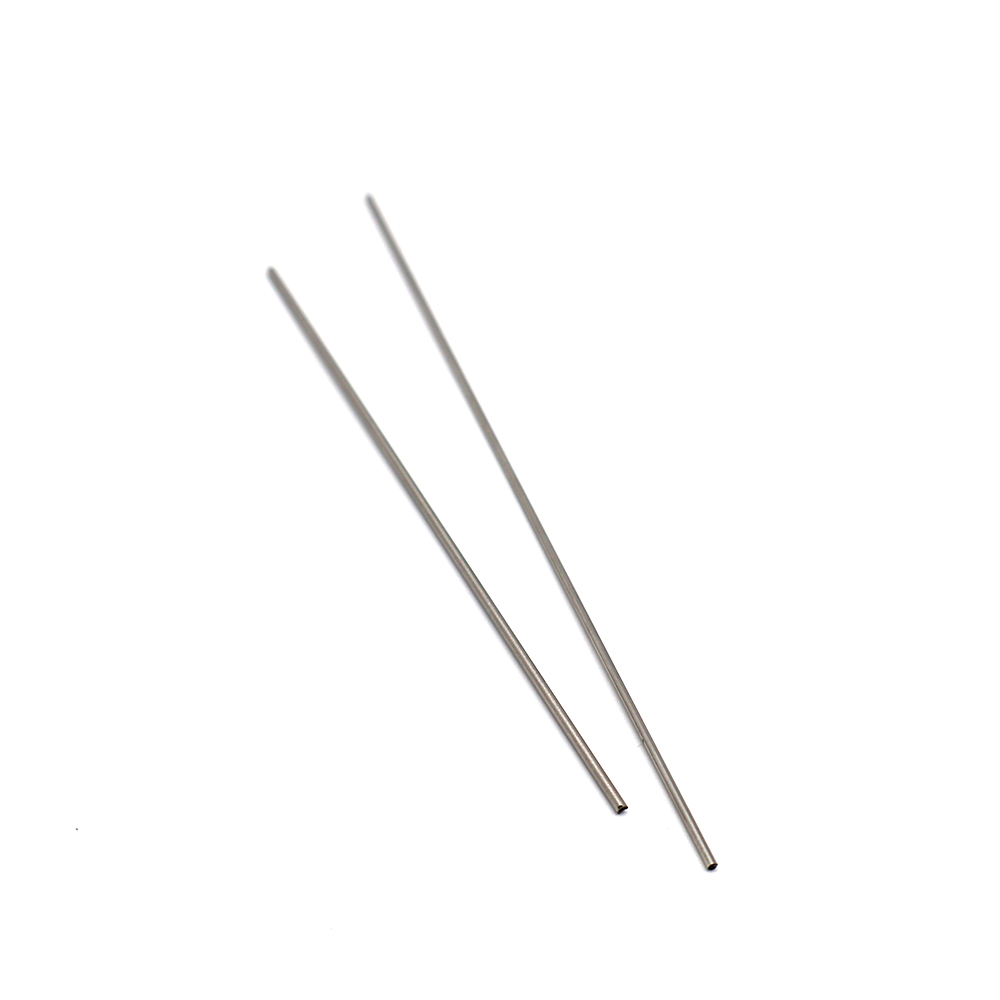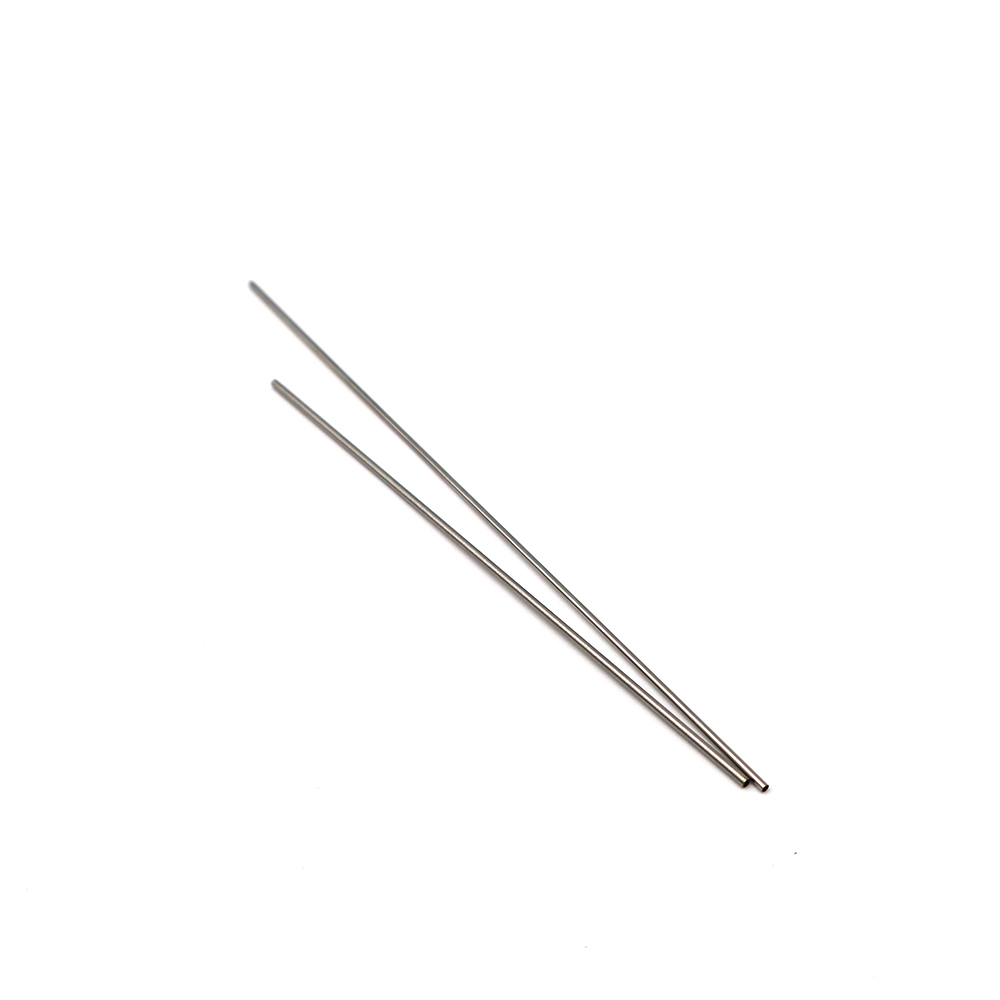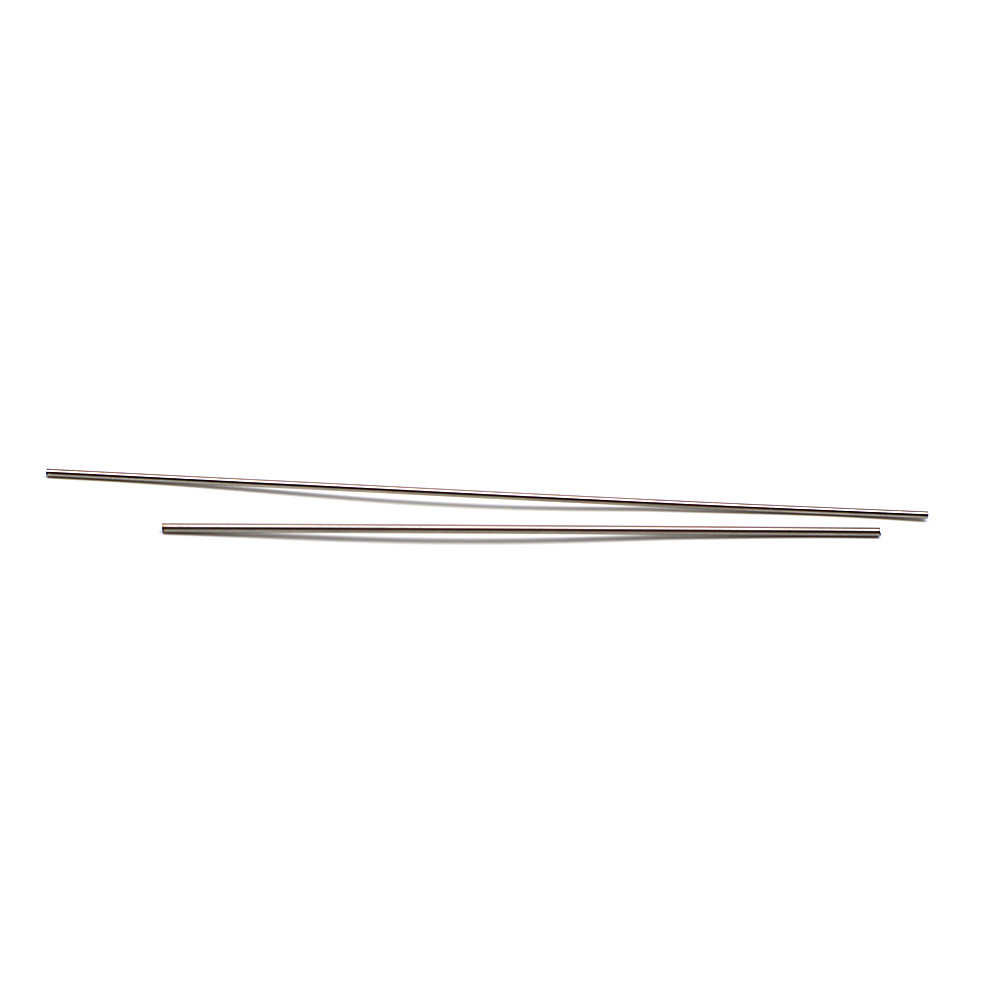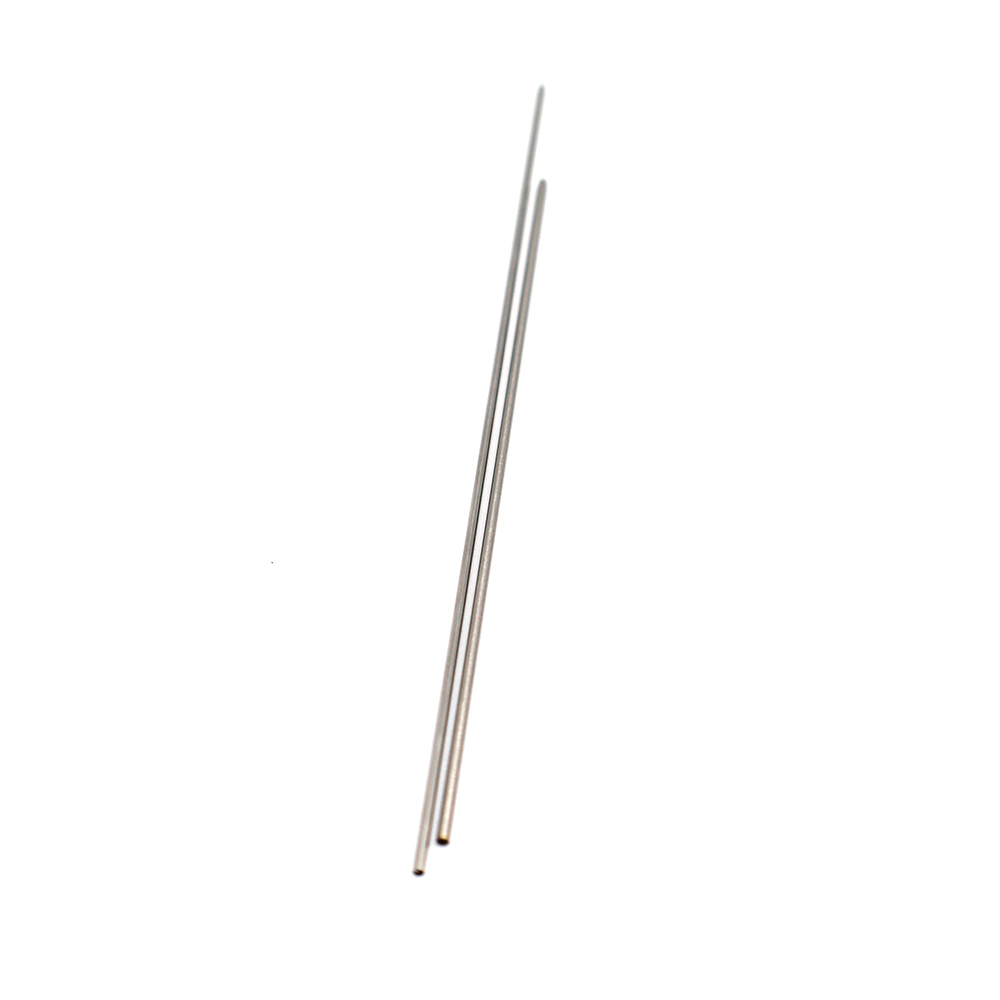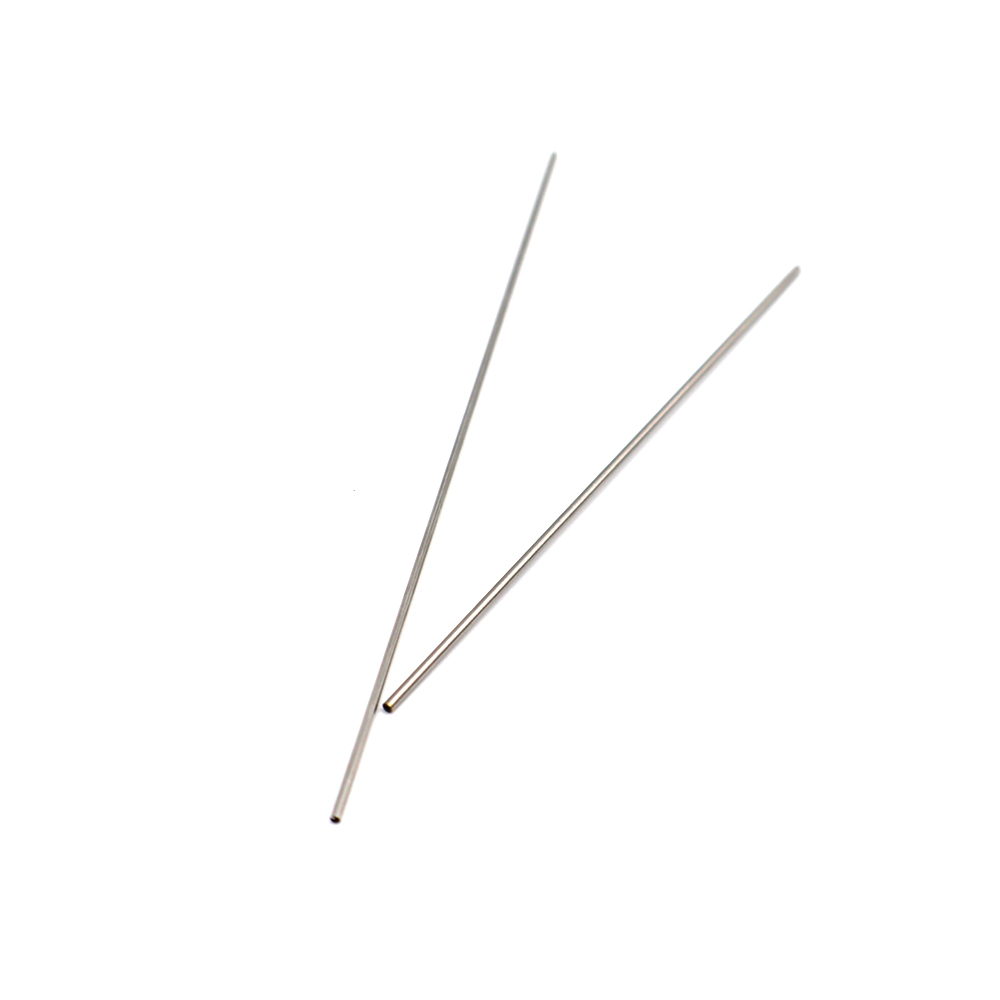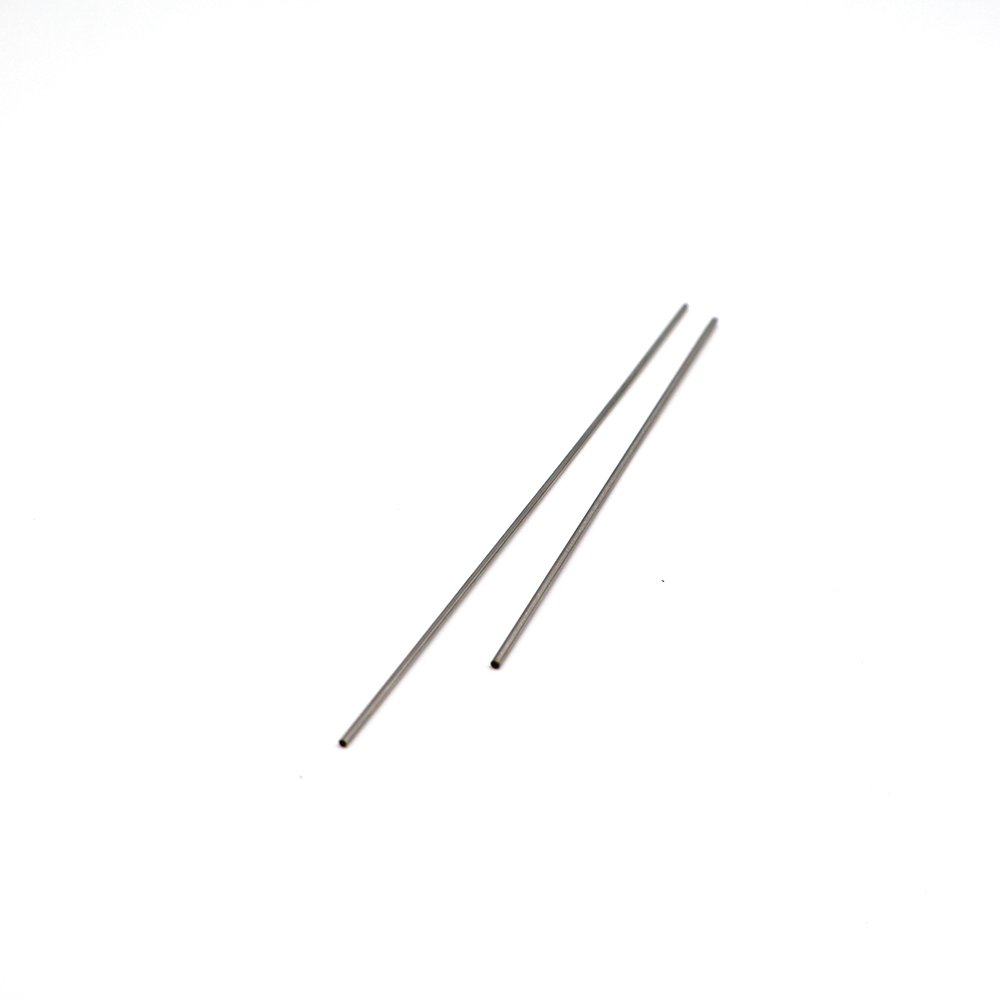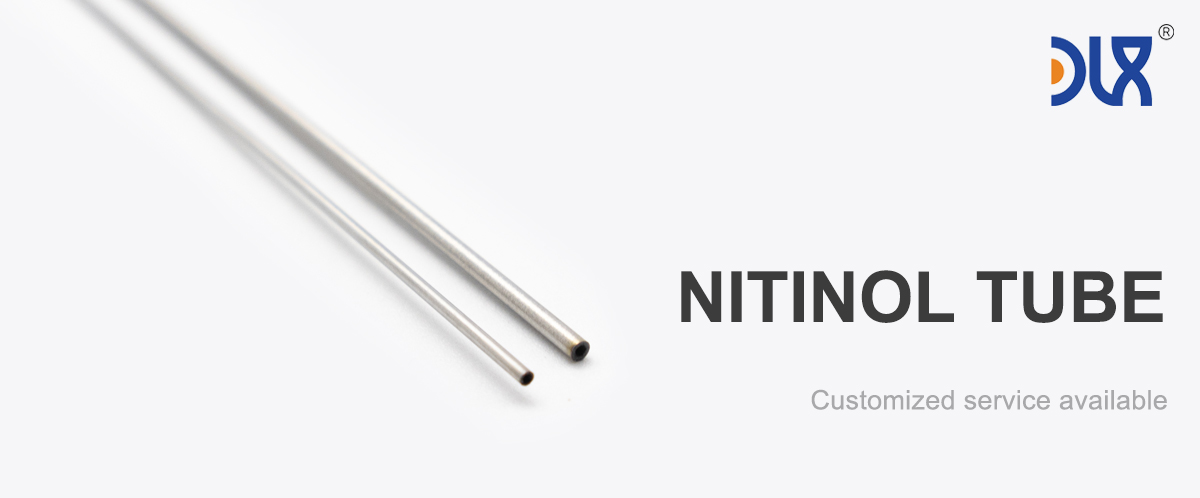
Our Nitinol Tube is a game-changer for advanced prosthetic component design, bringing intelligence and durability to life-changing devices. Nitinol, a nickel-titanium alloy, is famous for its shape memory and superelasticity—meaning it can flex under stress and snap back to its original shape, perfect for mimicking natural movement. With a nickel content of 54.5-57.0% and a transformation temperature range of -25°C to 35°C, our tubing meets ASTM F2063 standards, ensuring biocompatibility for long-term use in the body. Whether it’s powering a prosthetic joint or an adaptive limb, our Nitinol tube delivers performance you can trust.
For more details, pls directly contact us.
What sets our tubing apart? It’s engineered for precision and longevity. With tensile strength of 1000-1400 MPa and excellent fatigue life, it’s built to handle the constant motion of prosthetic devices. We’ve optimized it for applications like smart actuators and orthopedic supports, where flexibility and strength are critical. Our rigorous quality control ensures every batch is corrosion-resistant and biocompatible, with a smooth surface finish to minimize tissue irritation. When it comes to advanced prosthetic components, our Nitinol tube is the go-to choice for manufacturers and healthcare providers.
Nickel- Titanium Wire Grades and Composition Comparison
Grade | Chemical Composition (Main Elements, Balance Ti) | Transformation Temperature (Af) Range | Tensile Strength (MPa) | Elongation (%) | Main Applications |
|---|---|---|---|---|---|
NiTi-01M (Superelastic) | Ni: 54.5-57.0%, Ti: Balance | -25~35°C | 800-1100 | 10-20 | Medical orthodontic wires, root canal files, vascular stents |
NiTi-02 | Ni: 55.0-56.5%, Ti: Balance | 0~80°C | 700-1000 | 8-15 | Shape memory alloys, temperature control devices |
CuNiTi (Ternary Alloy) | Ni: 54.0-56.0%, Cu: 0.5-2.0%, Ti: Balance | -25~35°C | 850-1200 | 12-25 | Medical guidewires, sutures, staplers |
NiTiFe | Ni: 54.5-57.0%, Fe: 0.1-2.0%, Ti: Balance | -50~20°C | 900-1300 | 10-18 | Low-temperature applications, aerospace components |
NiTiCr | Ni: 54.5-57.0%, Cr: 0.1-0.5%, Ti: Balance | -20~40°C | 1000-1400 | 8-15 | High-strength medical devices, bone fixation devices |
For more details, pls directly contact us.
Our Nitinol tube is a carefully crafted blend of nickel (54.5-57.0%) and titanium, delivering the shape memory and superelasticity that make it ideal for prosthetic components. The transformation temperature range (-25°C to 35°C) is tuned for body-temperature performance, ensuring the tubing activates its shape memory precisely in dynamic applications. Compared to stainless steel or pure titanium, our Nitinol is a cut above. Stainless steel is strong but rigid, lacking the adaptability needed for smart prosthetics. Pure titanium is biocompatible but doesn’t match Nitinol’s shape memory or fatigue resistance, crucial for long-term use.
Our tubing’s corrosion resistance is exceptional, standing up to bodily fluids without degrading. Its high fatigue life ensures it can handle millions of cycles—think of a prosthetic knee flexing with every step. With an elongation range of 10-20%, our tubing balances flexibility and strength, making it perfect for intricate applications like adaptive limbs. We offer customization options, such as adjusting transformation temperatures or tubing dimensions, to meet specific prosthetic needs, all while maintaining ASTM F2063 compliance for medical safety.
Industry Analysis
The Nitinol tubing market is thriving, especially for advanced prosthetic components. In 2025, the global prosthetics market is growing at a CAGR of 7.4%, with Nitinol leading the way for its unique properties. The rise of smart prosthetics and an increasing focus on patient mobility are big drivers—amputees and healthcare providers need devices that combine durability with natural movement. Our Nitinol tube is tailor-made for this, excelling in applications like prosthetic joints and adaptive limbs where biocompatibility and flexibility are critical.
Beyond prosthetics, industries like medical, robotics, and aerospace are tapping into Nitinol’s potential, but healthcare remains the focus. Trends show a push toward smart materials, with manufacturers optimizing alloys for better biocompatibility and responsiveness. The growing demand for personalized prosthetics and robotic-assisted rehabilitation is fueling Nitinol’s popularity. Challenges like high production costs and strict regulations (like ASTM F2063) keep the market competitive, but our advanced manufacturing and rigorous testing give us a clear edge in delivering reliable Nitinol tubing.
Applications of Our Nitinol Tube
Our Nitinol tubing is a powerhouse for advanced prosthetic component design, shining in a range of applications:
Prosthetic Joints: Its shape memory ensures precise movement in knee or elbow joints, mimicking natural motion.
Adaptive Limbs: The tubing’s superelasticity supports limbs that adjust to user movements, enhancing comfort and functionality.
Orthopedic Supports: Its durability powers braces and supports, providing stable, long-term assistance.
Smart Actuators: The tubing’s shape memory drives responsive actuators in next-gen prosthetics, improving control.
Rehabilitation Devices: Its flexibility supports components in rehab tools, aiding patient recovery with precision.
These applications highlight why our Nitinol tubing is a top choice for prosthetics that demand intelligence and durability.
Company Comparison
When it comes to Nitinol tubing for advanced prosthetic component design, we’re setting the standard. Our tubing is crafted with precision, from tightly controlled nickel content to a smooth surface finish that minimizes tissue irritation. We invest heavily in R&D to optimize shape memory, tensile strength, and biocompatibility, ensuring our tubing meets the demands of prosthetic applications. Our advanced testing for corrosion resistance and fatigue life guarantees performance in the body’s dynamic environment.
Our supply chain is a major strength. We’ve streamlined production to deliver Nitinol tubing quickly, whether it’s a small batch for prototyping or a large order for global manufacturers. Our team works closely with clients to customize tubing specs, like adjusting transformation temperatures or wall thickness for specific prosthetic designs. With state-of-the-art manufacturing, we achieve tighter tolerances than industry standards, reducing risks and ensuring reliability. This blend of innovation, speed, and quality makes us the top choice for prosthetic manufacturers.
Comparison Table of Nitinol Tube Parameters
Parameter | Our Nitinol Tube (ASTM F2063) | Stainless Steel | Pure Titanium |
|---|---|---|---|
Nickel Content | 54.5-57.0% | 0% | 0% |
Transformation Temp (Af) | -25~35°C | N/A | N/A |
Tensile Strength (MPa) | 1000-1400 | 500-1000 | 240-550 |
Elongation (%) | 10-20 | 15-40 | 20-30 |
Superelasticity | Yes | No | No |
Shape Memory | Yes | No | No |
Corrosion Resistance | Excellent | Good | Excellent |
Biocompatibility | High (ASTM F2063 compliant) | Moderate | High |
Applications | Prosthetic joints, adaptive limbs | Structural parts | Bone implants |
Our Nitinol tubing is built for performance and trust. Here’s why it’s the best pick for advanced prosthetic components:
Unmatched Adaptability: Our tubing’s shape memory ensures precise, natural movement in prosthetic devices.
Top-Tier Quality: Every batch meets ASTM F2063 standards, with rigorous testing for biocompatibility and corrosion resistance.
Customizable: We tailor transformation temperatures and tubing dimensions to fit your specific prosthetic needs.
Fast Delivery: Our optimized supply chain delivers high-quality Nitinol tubing on time, every time.
Expert Support: Our material scientists and engineers are here to collaborate, ensuring your prosthetics exceed expectations.
Future Trends and Our Commitment
The Nitinol tubing market is evolving, and we’re leading the way. Advances in smart materials could enhance our tubing’s properties, like improving responsiveness for next-gen prosthetics. The rise of bionic limbs and robotic-assisted rehabilitation is driving demand for biocompatible, adaptive materials, and our Nitinol tubing is ready to meet those needs. We’re investing in next-gen manufacturing to stay ahead, exploring ways to optimize performance while keeping costs competitive.
Sustainability is a priority too. We’re reducing our environmental footprint through energy-efficient production and Nitinol recycling programs. As healthcare demands greener solutions and regulations tighten, we’re committed to delivering eco-friendly, high-performance materials. Our goal is to keep pushing the limits of what Nitinol can do, ensuring our tubing remains the top choice for advanced prosthetic innovation.
Conclusion
Our Nitinol tube is transforming advanced prosthetic component design, from joints to adaptive limbs. Its shape memory, superelasticity, and biocompatibility make it the ideal choice for life-changing prosthetic applications. With a booming market and trends favoring smart solutions, our tubing is built for the future. By choosing us, you’re getting more than a product—you’re partnering with a company dedicated to innovation, quality, and your success. Let’s create prosthetics that empower lives together.
For more details, pls directly contact us.
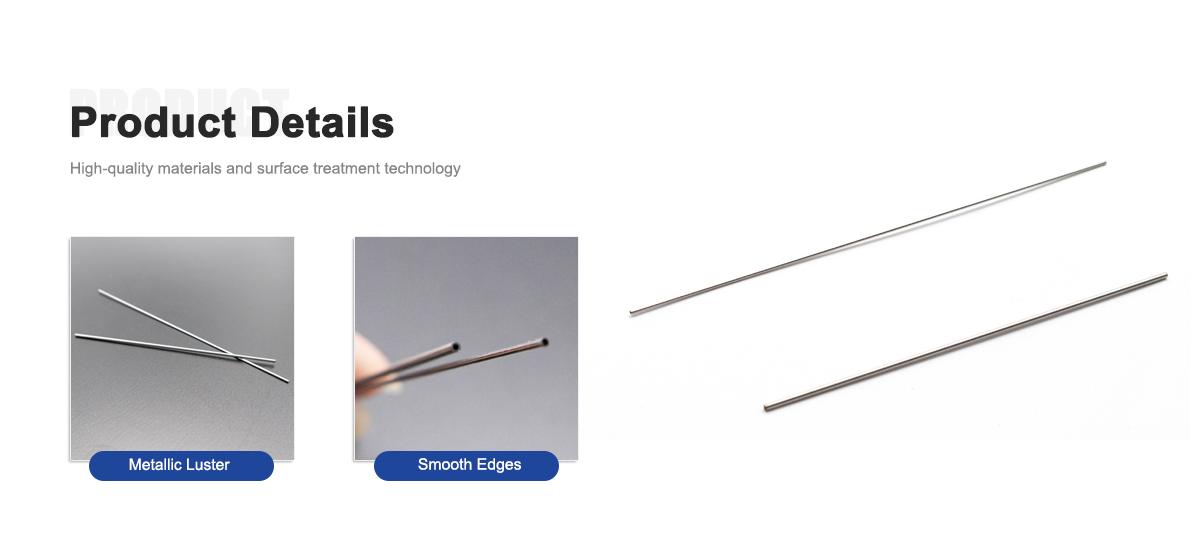
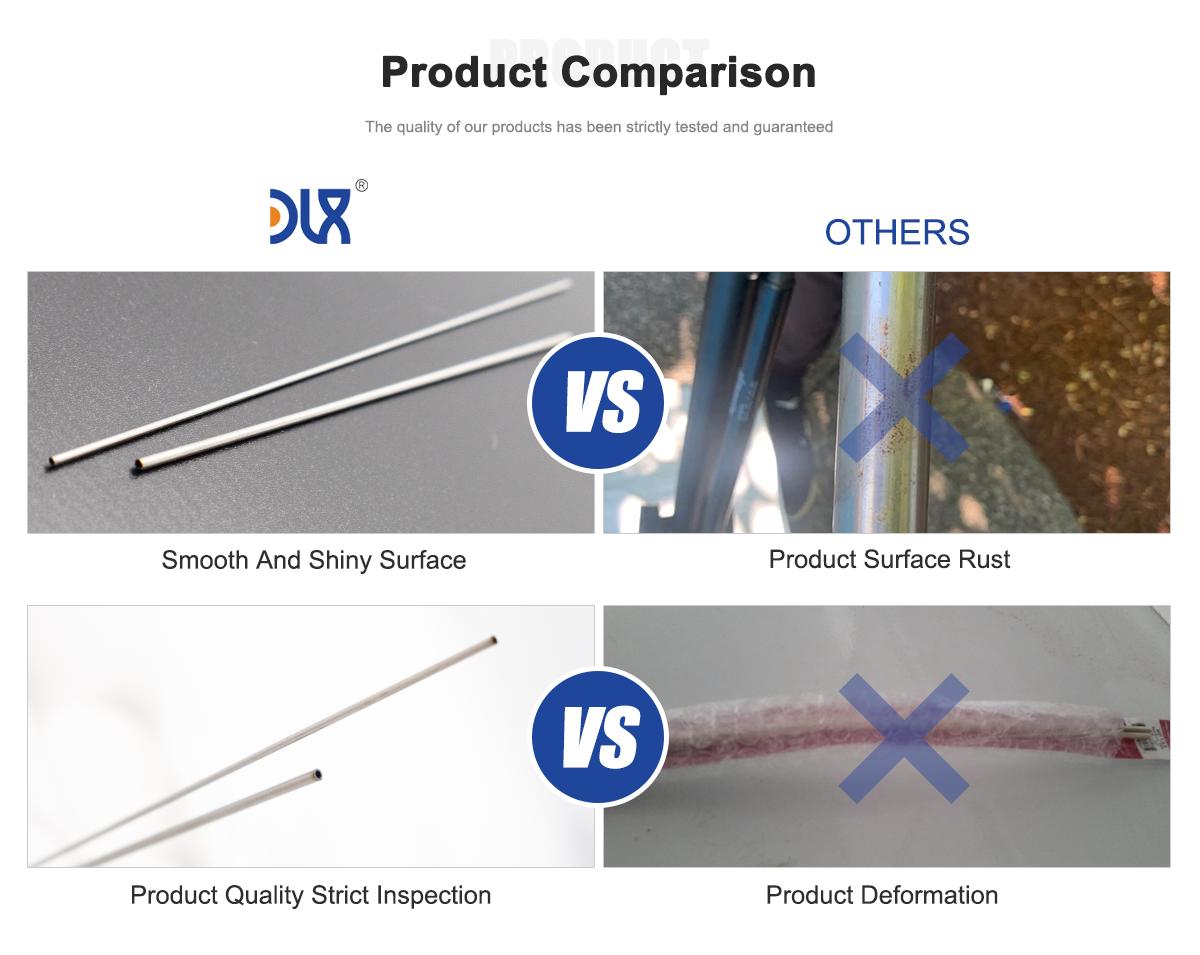
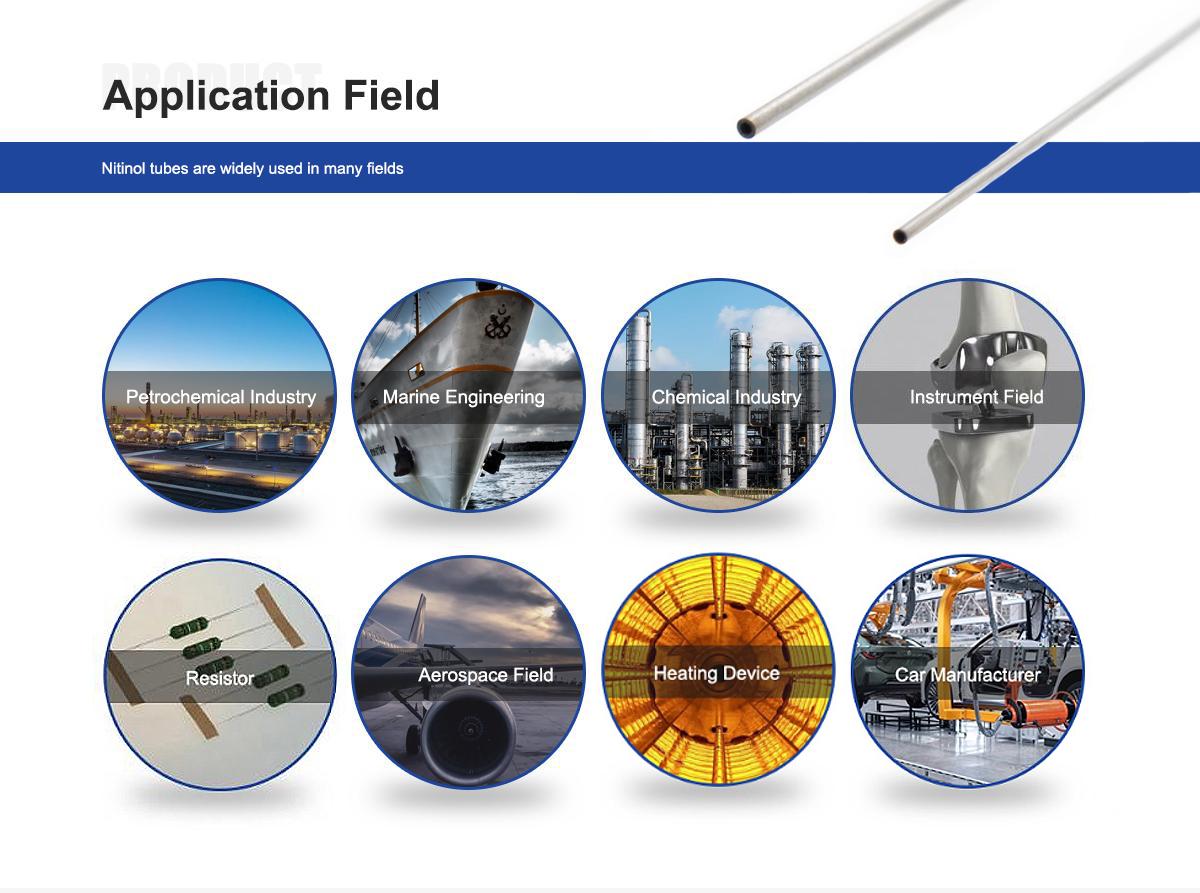
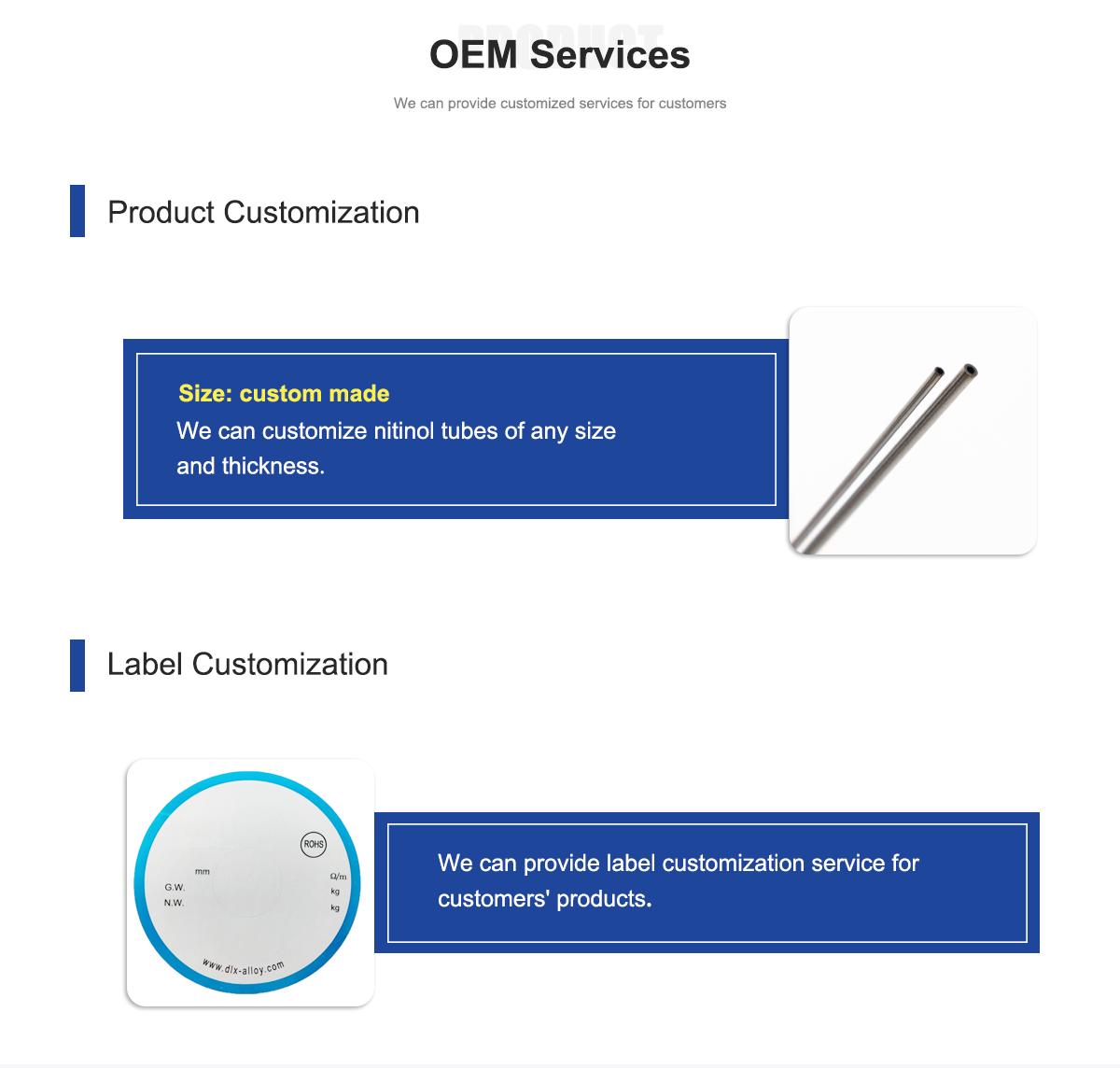
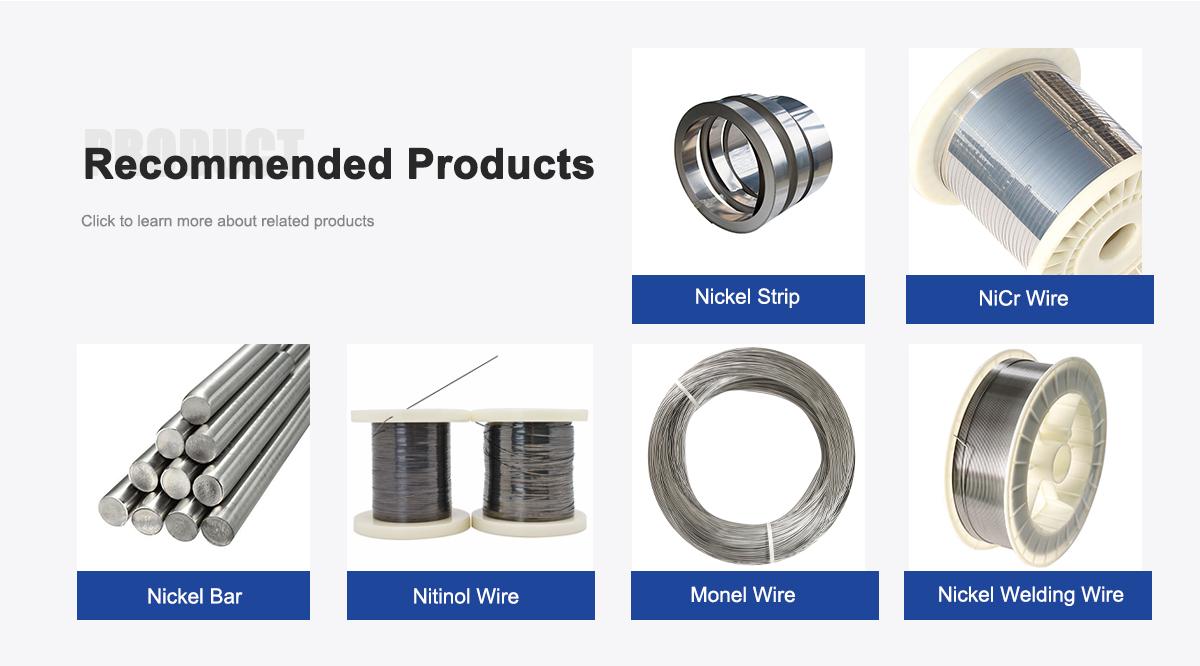
About Us:
Our 12,000㎡ factory is equipped with complete capabilities for research, production, testing, and packaging. We strictly adhere to ISO 9001 standards in our production processes, with an annual output of 1,200 tons. This ensures that we meet both quantity and quality demands. Furthermore, all products undergo rigorous simulated environment testing including high temperature, high pressure, and corrosion tests before being dispatched, ensuring they meet customer specifications.
For all our clients, we offer timely and multilingual after-sales support and technical consulting, helping you resolve any issues swiftly and efficiently.
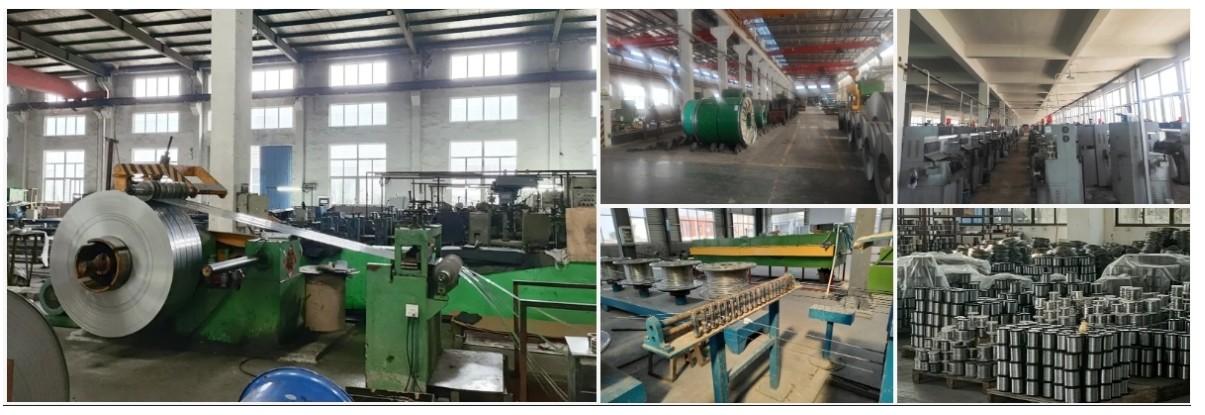
Client Visits
Building Stronger Partnerships

We support all kinds of testing:
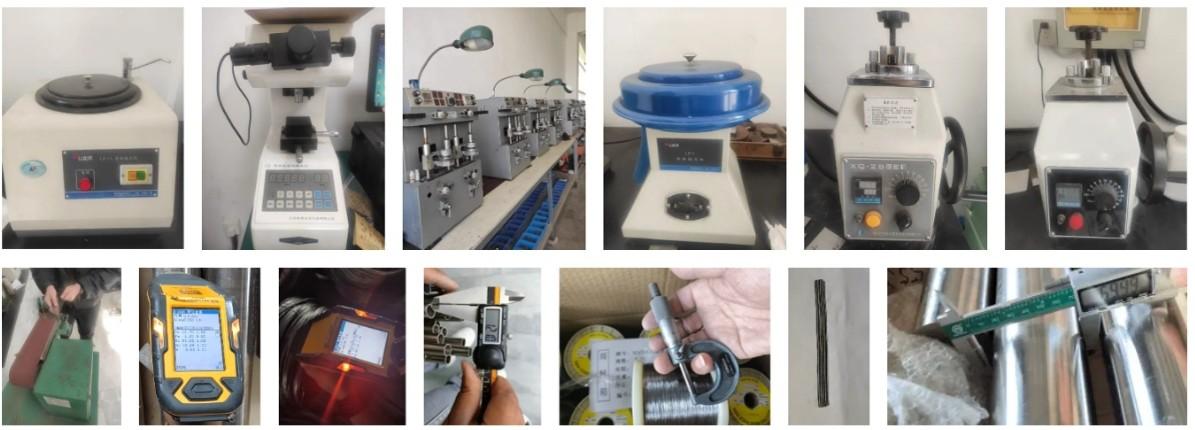

FAQs:
What is Nitinol tube for advanced prosthetic component design?
Our Nitinol tube is a nickel-titanium alloy designed for prosthetic components, offering shape memory and biocompatibility for enhanced functionality.How does shape memory benefit prosthetic components?
It allows our tubing to return to its preset shape after deformation, ensuring precise movement and fit in prosthetic devices.What are the main applications of our Nitinol tube?
It’s used in prosthetic joints, adaptive limbs, orthopedic supports, and smart prosthetic actuators, leveraging its flexibility and durability.Is our Nitinol tube safe for medical use?
Yes, it meets ASTM F2063 standards, ensuring biocompatibility and safety for long-term prosthetic applications.How does our Nitinol tube compare to other materials?
Unlike stainless steel or titanium, our Nitinol offers superior shape memory and superelasticity, ideal for dynamic prosthetic components.Which industries use our Nitinol tube?
Primarily medical for prosthetics, but also robotics and aerospace for shape-memory components.What are the market trends for Nitinol tubing in prosthetics?
Growing demand for smart prosthetics, advancements in biocompatible alloys, and increased use in adaptive limbs drive market growth.How does our Nitinol tube perform in prosthetic applications?
Its shape memory and high fatigue life ensure reliable, long-term performance in dynamic prosthetic systems.

